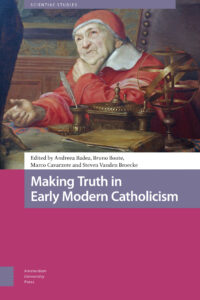About the book
David Hume has a canonical place in the context of moral philosophy, but his insights are less frequently discussed in relation to natural philosophy. David Hume and the Culture of Scottish Newtonianism offers a discussion of Hume’s methodological and ideological commitments in matters of knowledge as reflected in his language and outlook. Tamás Demeter argues that several aspects of Hume’s moral philosophy reflect post-Newtonian tendencies in the aftermath of the Opticks, and show affinities with Newton-inspired Scottish physiology and chemistry. Consequently, when Hume describes his project as an ‘anatomy of the mind’ he uses a metaphor that expresses his commitment to study human cognitive and affective functioning on analogy with active and organic nature, and not with the Principia’s world of inert matter.
Get the book from Athenaeum Booksellers, Amsterdam’s largest independent bookstore.



